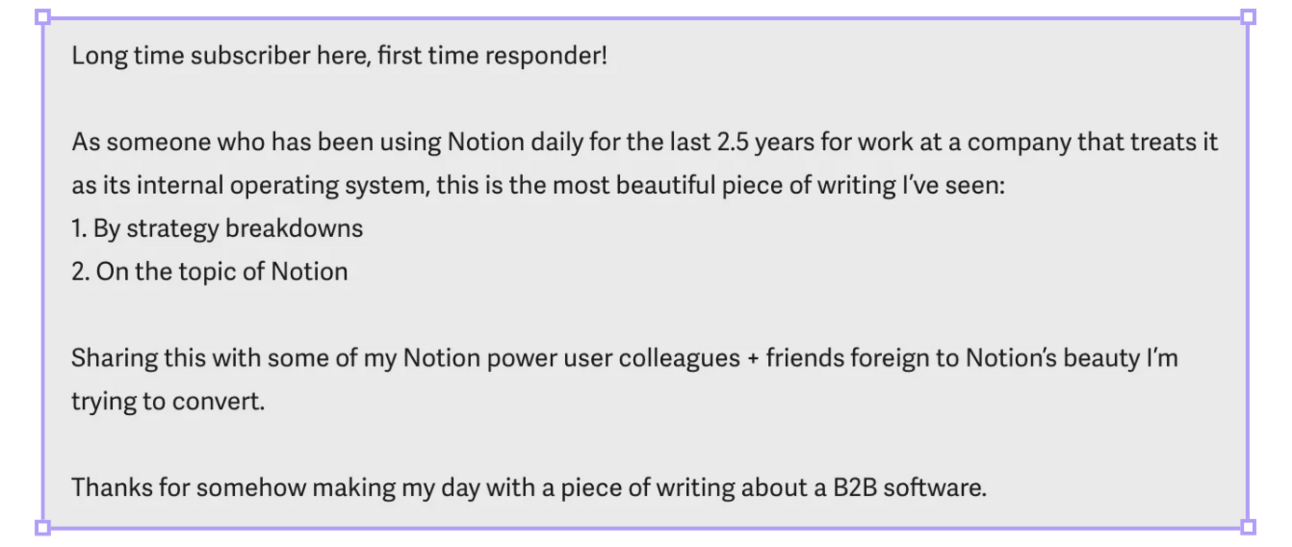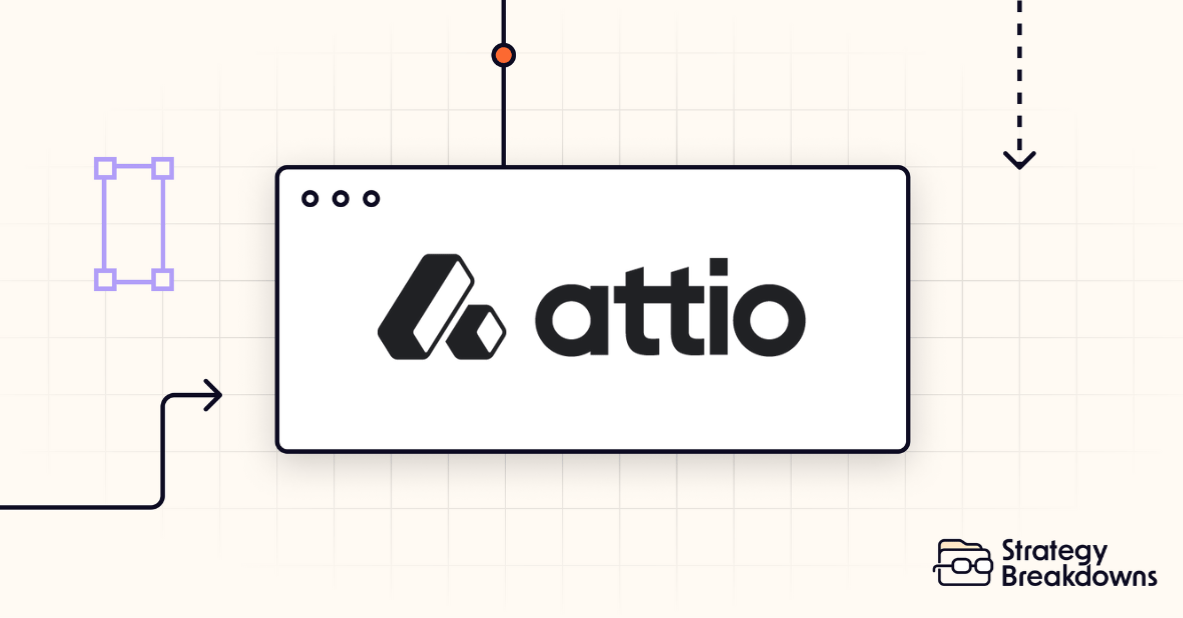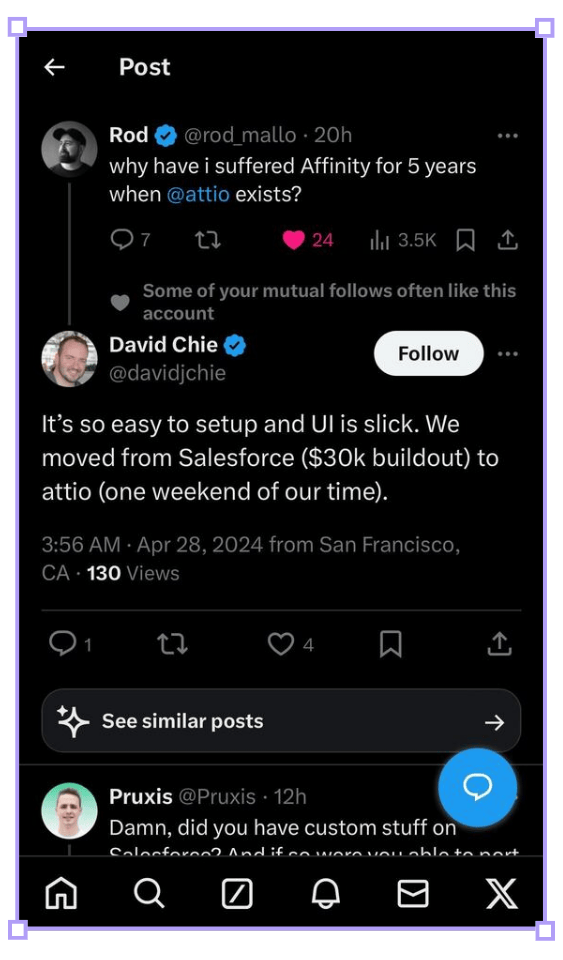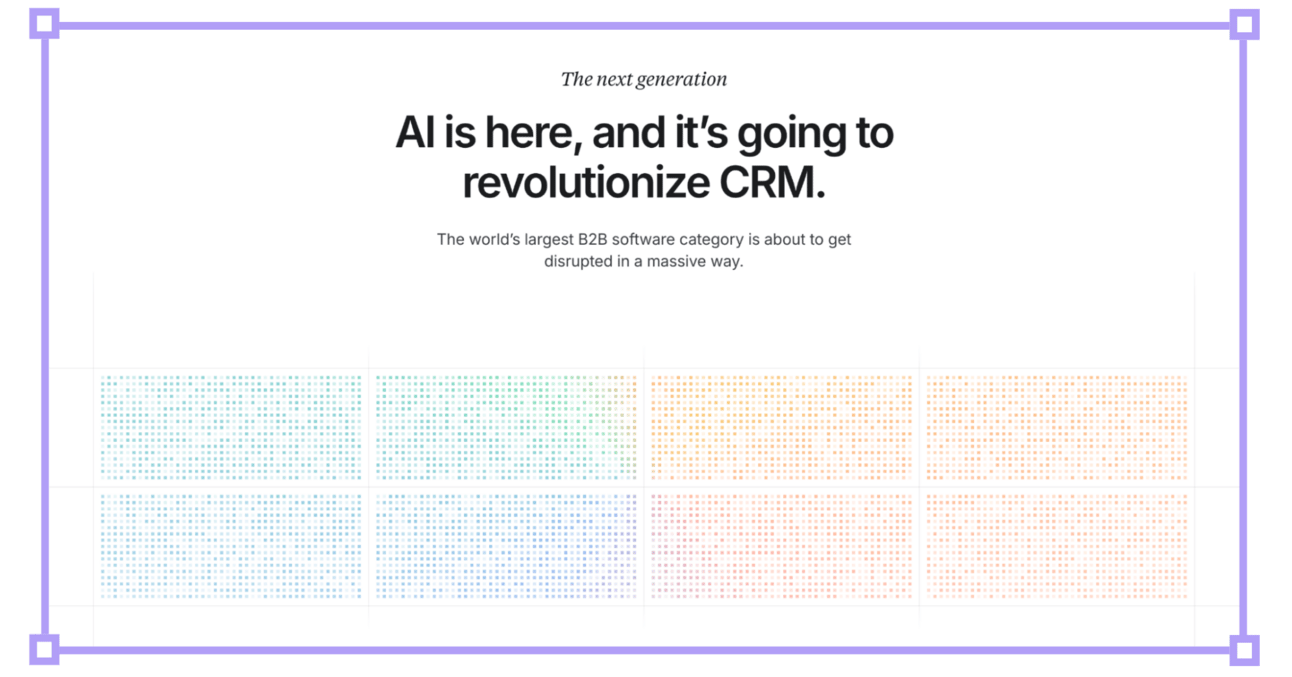Read time: 4 minutes 19 seconds

2 weeks ago I wrote about one of my favourite trends in tech right now:
We received more thoughtful email replies than the last 5 combined, so for today’s piece I’m riffing on a similar note.

The most exciting startups today are ‘Building-in-Public’ (“BiP”), because it makes for magnetic marketing, organic growth flywheels, and identity-forming products.
But I can count on one hand the number of companies doing BiP exceptionally well.
Here is one of them.
Enjoy.
– Tom


Looking for top talent without blowing your budget?
Athyna helps you build high-performing teams faster—without sacrificing quality or overspending.
Here’s how:
AI-powered matching ensures you find top-tier talent tailored to your exact needs.
Get candidates in just 5 days, ready to onboard and contribute from day one.
Save up to 70% on salaries by hiring vetted LATAM professionals.
Ready to scale your team smarter, faster, and more affordably?
My Playbook to Discover Hidden Opportunities
StrategyHub gives you the exact system I used at Atlassian to make high-impact strategic decisions using free online data.
Become your company's go-to 'insights person' by spotting patterns and opportunities that others miss.
Thank you for supporting our sponsors, who keep this newsletter free.



Chess Move
The what: A TLDR explanation of the strategy
Any startup wanting to crack an established market faces a similar paradox:
→ Most buyers only want software they can trust.
→ But, to build trust you need established customers using your product.
The CRM industry has historically been dominated by slow-moving incumbents who release major updates quarterly and make product decisions behind closed doors.
Attio took a radically different approach to rapidly build a level of trust that would normally take a decade of high-touch B2B relationship-building: build the product in public.
Not merely sharing feature releases after they ship. But actively involving users in the ideation, design, decision-making, development, and refinement of the product.
"We post even the smallest stuff because every update counts. The more you inform, the more ‘compound interest’ you create.” — Alexander Christie, Attio CTO / Cofounder

💡
Strategy Playbook: Transform your development process into a trust-building flywheel by making it completely transparent.


Breakdown
The how: The strategic playbook boiled down to 3x key takeaways
1. Turn customers into co-creators
Two of Attio's core development principles are Speed and Scalability. By involving users directly in the product development process, they've supercharged both.
"Our users tell us what works and what doesn't, often before we even have time to build it out fully." — Nicolas Sharp, Attio CEO / Founder

This instant feedback loop helps Attio:
Increase confidence and shipping velocity through faster validation
Prioritise based on real user needs, not assumptions
Catch issues that were missed internally
"I guess it's like having people cheering you on at mile markers during a marathon. The energy from our community pushes us to move faster." — Nicolas Sharp
The team operates on a deliberate 50/50 split between advancement (new features) and improvement (user requests), ensuring innovation and user satisfaction stay in balance.
For both new features and user requests, Attio actively involves users to create development leverage beyond their employee base.
With users always on the lookout for ideas, fixes, and improvements, the Attio team taps into a community of pseudo-teammates ‘working’ on the product in parallel.
2. Selling sawdust: market the very act of building
There's an old saying that carpenters should sell their sawdust - the natural byproduct of their craft. Attio take this idea and apply it to the software development process:
Bug fixes become tweets
Features ship with an origin story
Improvements link back to user conversations
Attio’s sawdust is the thousands of chats, requests, feedback, and other inputs that are already taking place behind-the-scenes as they build the product.
They are already doing the hard work (building), so they may as well put in the marginal incremental effort to showcase those activites as marketing.
This turns existing 1:1 interactions (Attio ↔ user) into scalable public broadcasts (Attio ↔ audience).
"It's good marketing because it shows the thought and care that goes into building the product. But what's more important is that it attracts a certain type of person to Attio… it often connects you with other creators and builders" — Nicolas Sharp
Typically, a CRM’s core ICP is marketers and salespeople. But Attio is building the LEGO of CRM - highly flexible, customisable, and able to support a long-tail of use cases.
Attio encourages all team members to share their work, which attracts a broad variety of other personas to the product.

3. Deliberately curate a cohort of superfans
Within any user base, there's a segment who want to be more than just users - they want to be part of the journey.
And it is these users that drive the elusive yet asymmetrically valuable ‘word-of-mouth’ growth engine.
This doesn’t happen accidentally. You need to create an ecosystem of opportunities for users to opt-in to this deeper relationship:
Beta tester programs
Behind-the-scenes interviews
Feature development discussions
Being so public with the process means you can’t exclusively share the wins - it forces you to share the losses too.
"When a release doesn't go as planned, we say so, and that honesty resonates with our users." — Nicolas Sharp
Somewhat counterintuitively, the transparency itself creates several strategic advantages:
The more you are willing to share, the more sawdust (content volume) you can market
Higher emotional investment and therefore retention among engaged users
Users feel a deeper connection with the Attio team, not just the product
More exposure to valuable lesser-used features
Most importantly, it creates a moat that competitors can't easily replicate.
Anyone can copy features, but you can't copy community trust.


Rabbit Hole
The where: 3x high-signal resources to learn more
[4 minute read]
Attio’s viral manifesto about CRM in the age of AI.
“Imagine a world where your CRM is not just a manual system of record, but also an autonomous system of action. It’s a living, breathing entity that understands your business context inside and out, perfectly matching your business model.”
Oh and team Attio put me and 50+ other tech folks on the NYSE billboard in Times Square - pretty neat!
[9 minute read]
Founder Nicholas Sharp’s vision for Attio's AI-native CRM.
A ‘system of record’, leveraging the powerful and flexible underlying data model that differentiates them from every other player in the space.
A ‘system of context’, automatically ingesting and understanding all of your structured and unstructured data from every video call, meeting, website, email, or document.
A ‘system of action’, autonomously conducting complex GTM tasks with out-of-the-box agents.
[2 minute read]
Attio’s recent fundraise + plans to disrupt the $89B CRM category.
Includes their growth philosophy, product roadmap, and hiring plans.
A watershed moment for the industry.
That’s all for today’s breakdown - hope you enjoyed!
— Tom
P.S. Attio just shipped a new website and it kinda went viral (check out the love it got over on X).


Whenever you're ready, there are 3 ways we can help you:
Our flagship course on how to use free internet data to make better strategic decisions. Contains 5 years of strategy expertise, proven methods, and actionable tactics to accelerate your career with modern-day strategy skills.
We have a growing audience of 55,000+ strategists from top companies like Google, Meta, Atlassian, Stripe, and Netflix. Apply to feature your business in front of Strategy Breakdowns readers.
One of the most common questions we get asked is: “What tools do you use to run Strategy Breakdowns?” So, we’ve open-sourced our tech stack to give you an inside-look at exactly what tools we’re using to power each corner of this operation.










